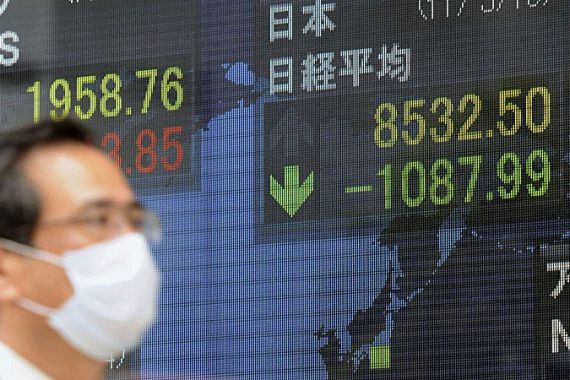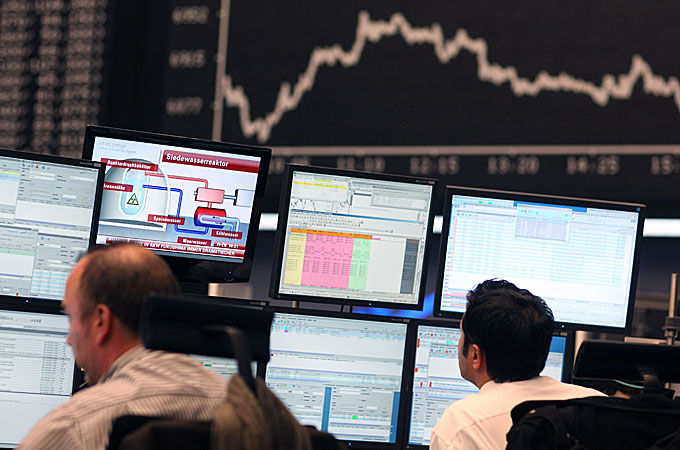Japanese crisis hits world markets
Stocks follow Japan downwards after Nikkei’s biggest drop since 1987 crash as tsunami and nuclear crisis hammer markets.

 |
| The German DAX was hard hit by the Japanese nuclear crisis on Tuesday, falling 5.1 per cent [Reuters] |
Japan’s stock market has plunged 10.6 per cent in the face of a worsening nuclear crisis, which has affected markets across the world.
The Nikkei has lost 16 per cent of its value since Monday, the benchmark’s biggest two-day drop since the 1987 crash, as Japan warned of significantly higher radiation levels following explosions at quake-stricken nuclear power plants.
Keep reading
list of 4 itemsWhy is Germany maintaining economic ties with China?
Behind India’s Manipur conflict: A tale of drugs, armed groups and politics
China’s economy beats expectations, growing 5.3 percent in first quarter
The Bank of Japan injected a further $97.8bn into the financial system in an attempt to calm the markets, a day after it fed a record $184bn into money markets and eased monetary policy.
The government has said it expects a “considerable” economic impact from the 8.9 magnitude earthquake, devastating tsunami, and subsequent nuclear crisis.
The catastrophe has also impacted on global markets, with some $247bn being wiped off the value of indexes of major European stock markets and shares in the region fell to their lowest in 14 weeks.
The FTSEurofirst 300 index of top European shares finished the day down 2.2 per cent at a three-month closing low of 1,084.70 points. Germany was hardest hit in early European trading, with the DAX index down 3.19 per cent, while France’s CAC-40 slid 2.51 per cent and Britain’s FTSE 100 index fell 1.38 per cent.
US markets were also hit early in the session but pared losses later in the day with the Dow Jones industrial average and Standard & Poor’s 500 index both down by around 1 per cent.
Southeast Asian stock markets also dropped on Tuesday, with Singapore falling more than 3 per cent at one stage to its lowest level since last August. Indonesian shares also fell 1.3 per cent.
Investors across Asia are leaving risky assets such as equities and commodities because of uncertainty about world growth following the Japanese earthquake and nuclear crisis.
In Hong Kong the main index fell 2.86 per cent, Australia plunged 2.11 per cent, and South Korea shed 2.40 per cent.
Stocks in emerging markets also fell two per cent on Tuesday, with Russian and South African stocks plummeting amid news of radioactive leaks in Japan.
Meanwhile safe-haven assets, such as US Treasuries and the dollar, have soared. The dollar rose 0.8 percent against a range of major currencies, pulling away from last week’s four-month low. The yen has also made gains because of its capacity as a safe haven asset.